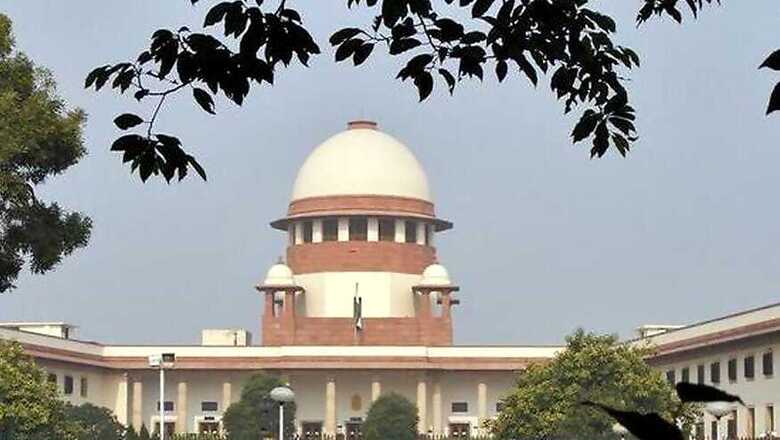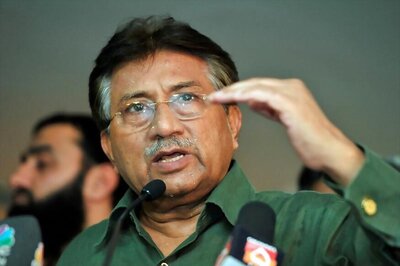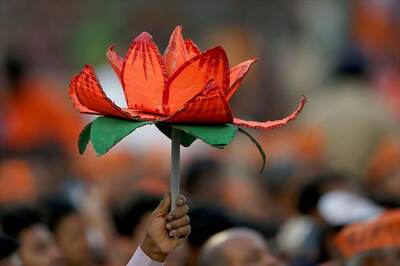
views
New Delhi: A bench comprising Chief Justice Dipak Misra and Justices AM Khanwilkar and D Y Chandrachud today delivered the historic verdict in the Cauvery dispute putting an end to a 120-year-old long fight for water.
The verdict upheld the validity of the two pre-independence agreements signed between the then Government of Madras (Tamil Nadu) and the then Government of Mysore (Karnataka) in 1892 and 1924.
In February 2007, the Cauvery Water Disputes Tribunal had also upheld the validity of the two agreements of 1892 and 1924 but had, however, noted that the order would then supersede the previous agreements as related to the Cauvery river system.
So what were these two pre-independence agreements which the SC upheld?
Both Madras and Mysore were controlled by the British till the middle of the 19th century and it is during their administration that there were multiple water-sharing agreements between the two regions for sharing Kaveri’s (Cauvery) water which was primarily used for irrigation and drinking purposes.
In the late nineteenth century, Karnataka, while purporting to restore their old irrigation works, wanted to build new ones for the benefit of other areas. These constructions were to be made on the rivers and streams emanating and passing through their state. Apprehending that such constructions by Karnataka will diminish the water flowing into Tamil Nadu, the state took up the matter with the Government of India.
The agreement between Mysore Government and Madras Government was entered into on February 18, 1892, in the form of Rules known as “Rules defining the limits within which no new irrigation works are to be constructed by the Mysore State without previous reference to the Madras Government.”
The 1892 agreement precisely stated that Karnataka was to have previous consent from Tamil Nadu in respect of any construction proposed to be made including any new irrigation reservoirs across the 15 main rivers and stream mentioned in specific schedules.
The agreement had also made it clear that prior to any such project is executed, full information regarding the same had to be furnished to Tamil Nadu for the purpose of consent.
Tamil Nadu was bound to not refuse such consent except (1) when Karnataka had not furnished full information regarding the proposed work to Tamil Nadu; (2) If Tamil Nadu grants such a consent then it would deprive its inhabitants of certain rights already acquired and existing in accordance with the law on the subject to use water of an interstate river.
Thereafter, the next agreement was signed in 1924. Karnataka was on their part free to carry out future extensions of irrigation within its state under the Cauvery and its tributaries to an extent now fixed at 110,000 acres.
Tamil Nadu on their part agreed to limit the new area of irrigation under their Cauvery Mettur Project to 301,000 acres.
Karnataka and Tamil Nadu agreed that the reserve storage for power generation purposes now provided in the Krishnarajasagara may be utilized by Karnataka according to their convenience from any other reservoir. It was also decided that if there was any dispute, then the same will be settled through arbitration and be submitted to the Government of India.
Last year, when eminent jurist and senior advocate Fali S Nariman argued the case on behalf of Karnataka. He stated that the 1892 agreement, which, was the parent of the 1924 pact, dictated that Mysore could not develop any irrigation infrastructure on the river without the previous consent of the Madras government. Any grievances could be addressed only through arbitration. Hence the agreement was an “unconscionable bargain” to share the Cauvery river water.
Then, February 2007, when the Cauvery Water Disputes Tribunal delivered the verdict it stated that “the agreements which were executed between the then governments of Mysore and Madras cannot be held to be invalid, especially after a lapse of about more than 110 and 80 years respectively."
It said: "Before the execution of the two agreements, there was full consultation between the then governments of Madras and Mysore. However, the agreement of 1924 provides for review of some of the clauses after 1974. Accordingly, we have reviewed and re-examined various provisions of the agreement on the principles of just and equitable apportionment."
Now with the SC upholding the validity of the pre-independence agreements, the only way out for Karnataka to again establish its stand of these two agreements having no value can be achieved only through a review petition, if any.




















Comments
0 comment